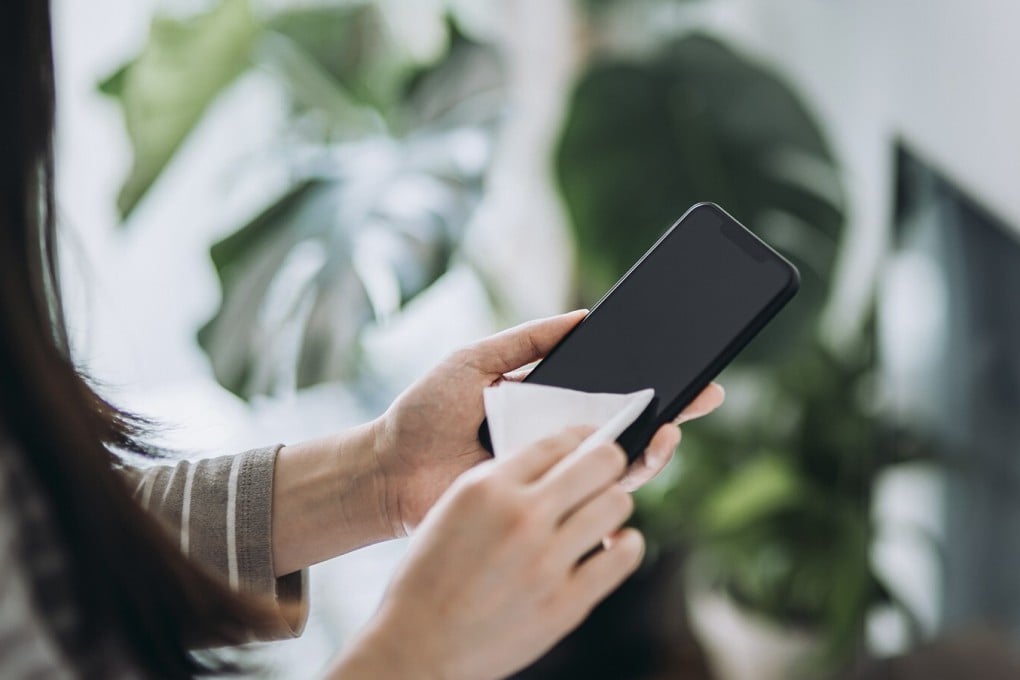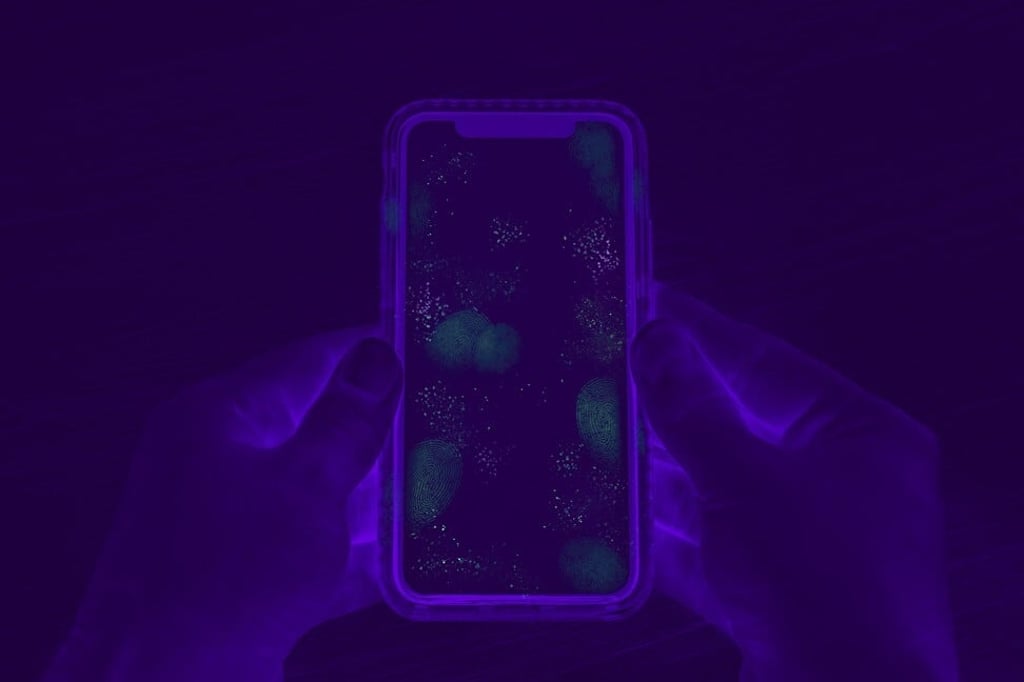What’s the best way to clean your phone of coronavirus? Alcohol wet wipes, UV sanitisers, soap and water – the pros and cons
- The virus that causes Covid-19 can remain on glass, metal and plastic for up to seven days, which is why we should regularly clean our phones
- As well as wipes or soap and water, there are devices that claim to get rid of pathogens with UV light – but how effective are they against the coronavirus?

Our phones are an inextricable part of our lives. We are constantly scrolling on them for social media updates from our friends, the occasional game, or to check for messages or news updates.
The dirty smartphone represents a massive gap in our defences. After setting our phones down to wash our hands, we typically pick the device up again without cleaning it, reintroducing bacteria and viruses to our hands. So, just how dirty is the typical smartphone?

According to scientists at the University of Arizona, a smartphone has on average 10 times more bacteria than a toilet seat. A separate study by researchers in Britain found the hands and phones of 16 per cent of participants were contaminated with E coli, an illness-causing bacteria that originates from faecal matter.
